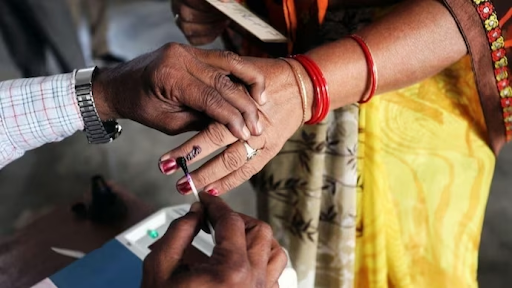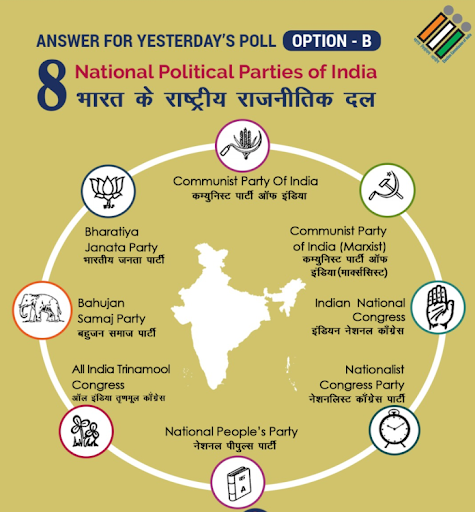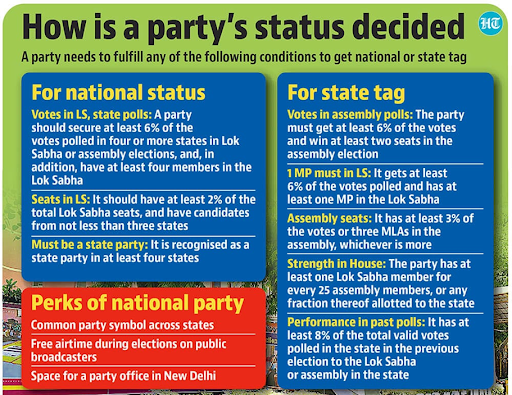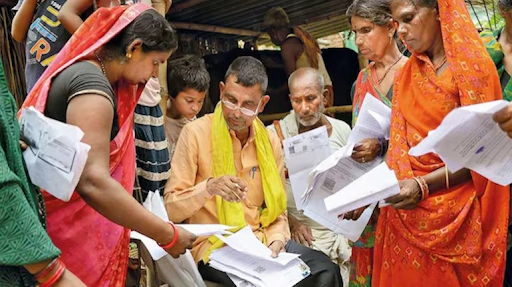



An ADR report exposed major transparency gaps, revealing 59% of Bihar’s Registered Unrecognised Political Parties failed to submit financial disclosures for FY 2023–24. This violation of the Representation of the People Act underscores rising financial opacity and accountability issues in Indian elections.

Copyright infringement not intended
Picture Courtesy: INDIATODAY
A new report by the Association for Democratic Reforms (ADR) revealed that 59% of Registered Unrecognised Political Parties (RUPPs) linked to Bihar failed to submit mandatory financial disclosures for FY 2023–24.
|
Read all about: REGISTERED UNRECOGNISED POLITICAL PARTIES (RUPPS) |
RUPPs are political organisations registered with the Election Commission of India (ECI) under Section 29A of the Representation of the People Act, 1951, but they do not meet the criteria to be classified as National or State Parties.
The ECI categorises political parties as:

Recognition depends on electoral performance—votes secured and seats won in Lok Sabha or Assembly elections.
Recognition Criteria:

Privileges
Recognised parties enjoy exclusive election symbols, free airtime on Doordarshan and All India Radio, free electoral rolls, and the ability to nominate up to 40 Star Campaigners.
RUPPs, however, have to pick symbols from a common list, get no free broadcast time, and are limited to 20 Star Campaigners.
RUPPs benefit from tax exemptions under Section 13A of the Income Tax Act, 1961—a privilege that has become a concern.
The Growing Number of RUPPs
In 2001, India had 694 RUPPs. By 2025, that number exceeded 2,800.
The Representation of the People Act (1951) and ECI guidelines (since 2014) require all registered parties to:
ADR’s 2025 nationwide analysis revealed that RUPPs’ declared incomes surged by 223% in FY 2022–23, yet 73% of these parties failed to share financial details publicly.
Why So Many Fail to Comply?
Delisting Drives: In 2025, the ECI delisted 808 RUPPs for non-compliance—334 in August and 474 in September—for failing to contest elections for six consecutive years or to file mandatory reports.
Online Reporting Portal: The Integrated Election Management System (iems.eci.gov.in) launched in 2023 enables online submission of contribution and audit reports to improve accessibility and monitoring.
Stricter Symbol Allocation Rules: Since 2024, RUPPs seeking common symbols must present audited accounts and election expenditure statements from the previous elections.
|
Limitations of ECI
|
Empower ECI to De-register: Amend the Representation of the People Act to allow de-registration for persistent non-compliance, financial fraud, or long-term inactivity.
Tighten Financial Rules:
Reform Registration Criteria: Raise entry standards for party registration to prevent the creation of shell entities.
Automated Deactivation: Parties failing to contest elections for two general cycles should automatically lose registration.
Unrecognized political parties undermine electoral transparency and democratic integrity by exploiting loopholes. To address this, financial transparency, empowering the Election Commission, legislative reforms, and enhanced accountability are essential to ensure parties truly represent public interest.
Source: INDIA TODAY
|
PRACTICE QUESTION Q. Discuss the paradox of registered unrecognised political parties in India, which represent democratic pluralism yet pose regulatory challenges. 150 words |
A RUPP is a political association that is registered with the Election Commission of India (ECI) under Section 29A of the Representation of the People (RP) Act, 1951, but has not secured sufficient vote percentage or seats in assembly or general elections to be recognized as a 'State Party' or a 'National Party'.
If a RUPP performs well in Lok Sabha or State Assembly elections and meets the specific criteria for vote share and seats won as laid down in the Symbols (Reservation and Allotment) Order, 1968, it can be upgraded to a recognised state or national party.
The ECI has delisted and declared hundreds of RUPPs as "non-existent" or "inactive" because many were found to be violating legal requirements, such as not contesting elections for years, having untraceable addresses, or failing to submit financial reports. The ECI suspects many "letter-pad parties" misuse their tax-exempt status for money laundering.




© 2026 iasgyan. All right reserved